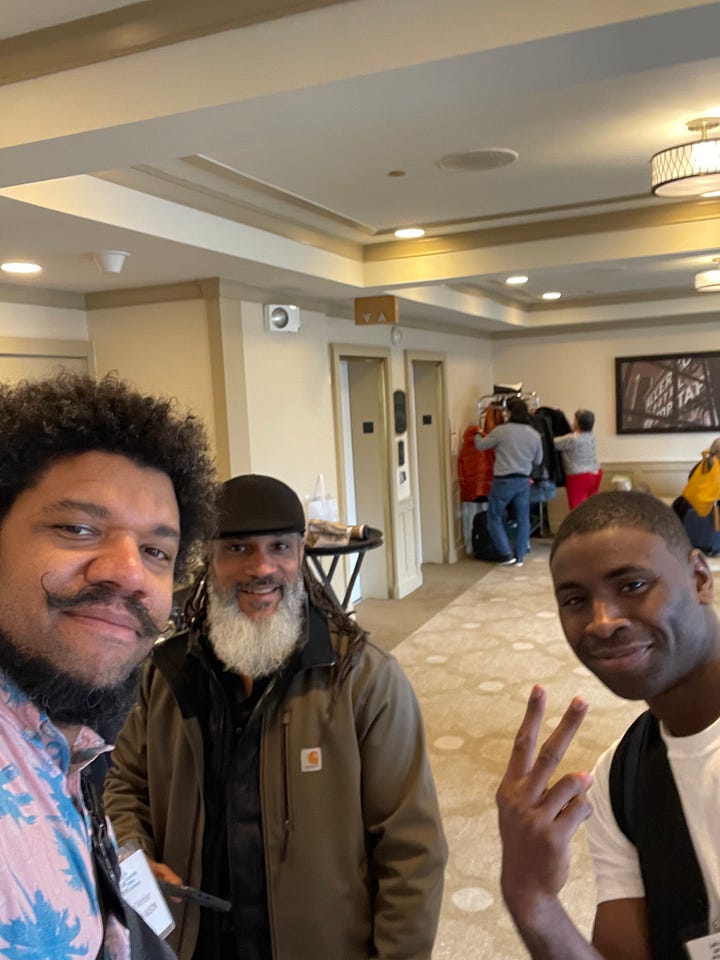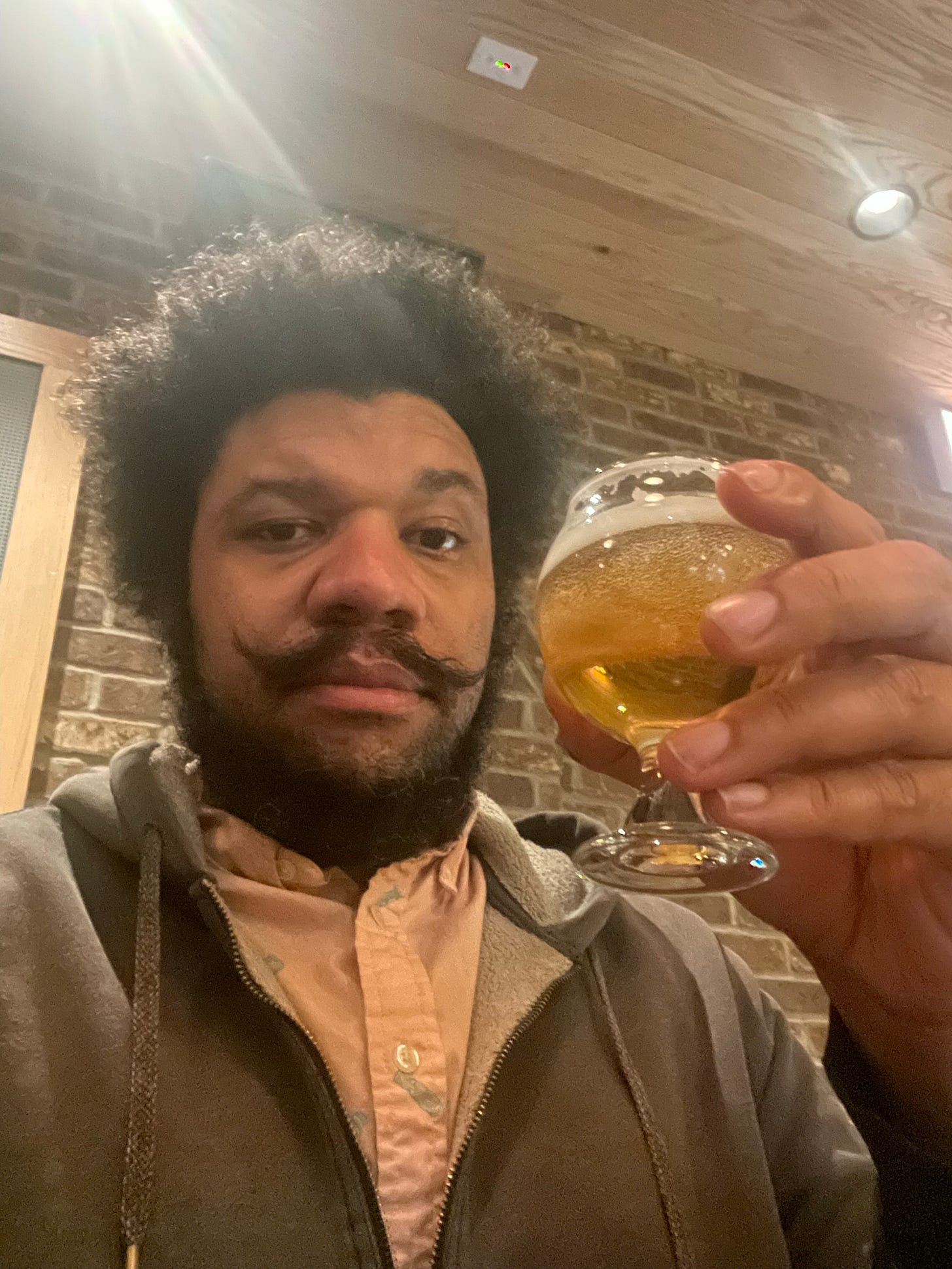What’s up Jotham?
Perfection Paralysis. How perfect does this have to be?
Hey there, hope y’all are doing well. Spring has sprung here in Chicagoland, kind of, and we are having a bracket busting good time with NCAA March Madness.
If you don’t follow sports, March Madness is a college basketball single elimination tournament where 68 teams compete in seven rounds for a national championship, and before the tournament starts you fill out a bracket (you pick the winners of each game, and games in each round are worth points. For more information and history, check out this article from the NCAA.
It’s called March Madness because in any given game you can have unpredictable upsets, and this could “bust” your bracket. Like a 1 seed losing to a 16, this has only happens twice, and one was this year (sorry Purdue fans). So, the odds of filling out a perfect bracket is 1 in 9,223,372,036,854,775,808.
I’ve never had a perfect bracket or come close to a perfect bracket (had plenty the were busted in the first round), but for the last 23–24 years I have picked winners and losers. I don’t practice, I do a scant amount of research into the teams, I just pick and post my brackets for everyone to see. But when it comes to doing creative stuff my brain can get stuck in the trap or perfection.
I think about practice makes perfect, or the “10,000-hour rule”, but what if I only have 9,000” hours? And what counts as practice? Have I been doing it wrong all this time? Is that why I cannot write a perfect sentence?
We all have hear it, and these things are well meaning to motivate when you are feeling empty—but not practical. We are not at the gym and the trainer is trying to get us to do one more squat. For me, thinking about these things can put a real damper on the creative process, and those great ideas never turn into great stories, because even when I start writing I think about being perfect and maybe if I practiced a little more before doing this grand thing, I’ll be more ready to succeed. And the wheel of perfection paralysis starts to spins out of control. But I don’t have time for that—let’s get off this perfection merry-go-round and embrace the chaos of just going for it. It’ll be okay, that’s what editing is for—right—let’s do it! Let’s break this down some more
Like most creatives, I do my art in the margins of time between family, the job that pays the bills, friends, and filling out March Madness brackets, etc. So, every minute I get paralyzed by perfection and not putting words down, I’ve missed my window to create. We do our art mostly isolated. We do it because we love it. Furthermore, we don’t do it, or think about perfection, until we have that greatest of idea, or want to show our creation to someone else.
I struggle with what draft is it okay to give to alpha readers (the first eyes to see the piece after I type, “The End”)? When do I give it to Beta readers (readers that give serious critique)? When do I query? When do I pitch this idea to my agent? What if no one likes what I wrote? Can I study more story theory? Can I practice more?
What happens when I try something new—like starting a podcast—When do I post my first episodes on my podcast? What if I sound like crap? What if no one listens?
Wow! That felt good getting all that off my chest, my head. But why is it there in the first place? I think it’s because creativity is an extension of self. We put a little part of our heart and soul into our pieces. And those little pieces are exposed and raw.
So, if someone criticizes your art, it feels like a personal attack. It shouldn’t be. It probably isn’t. There is likely some nugget of constructive advice in there. As always, you have to separate the helpful from the crap. A total trash review is as helpful as a glowing review. Neither is helpful nor helps us grow as artists, but I do enjoy when people say I’m awesome.
It’s okay and probably better to create in our own private safe space. We need to learn/study. We need to practice and experiment. But, as we learn and experiment, we need to share our work to get useful critiques. We need that feedback to know what’s working and what’s not. We are all our biggest fan and harshest critic—our safe space can lead to perfection paralysis, as we stew in cycle of excited energy at the start of the project and self doubt as the project nears completion.
I’ll unpack my thoughts on some of these issues in more detail in future newsletters, but I want to focus on putting ourselves out there even though we think our work is not perfect.
I’m struggling with this. I recorded the first podcast last September. And since then, I have been pondering about the format, about co-hosts, about topics, about would people want to hear it? I then listen to other podcasts (that are awesome) and realize my podcast isn’t that. And 6 months later, no podcast has been posted or more episodes recorded. I’m paralyzed by the pursuit of perfection. The perfect recording, perfect topic—everything has to be perfect.
But, we all know nothing is ever perfect. We can get close, but that’s through hours and years of practice and doing. Those awesome podcasts, books, art works, whatever, started in the same place you are, at the beginning of the journey. They had the same fears and anxiety of putting themselves out there, but they knew if they didn’t they wouldn’t grow.
I look back at the first novel I wrote, and gave it to people to read—embarrassing compared to what I’m writing now, but I needed feedback to understand what I was doing wrong in my story telling. Their critiques helped me grow.
I look at the first newsletter I posted, I can see the steady improvement in content, layout, etc. not every story I write is awesome, not every newsletter hits it out the park, but by putting myself out there, I can see the growth.
To help with my writing and overcome perfection paralysis, I joined the Highland Writers Group. They are a group of writers that I can bounce ideas off of, share polished and early drafts with. I joined writer associations, like the Chicago Writers Association (CWA), Authors Guild and the Illinois Woman’s Press Association.
Also, I started attending writer conferences like the Chicago Writers Association Let’s Just Write conference. I was there this weekend, and as a new board member (more on this next episode), but here are a few pics.




It was at the CWA conference in 2019 that I met several of my beta readers. I had the chance to speak to writers further along in their creative journey, and get a tidbit of advice. Also, I got their reassurances that every creative gets jittery staring at a blank page, willing every word they type to be perfection, and anxious giving their work to someone for critique. They also said that I had to trust my process (the writing-editing cycle), my studies of story structure, and practice of these studies to navigate the creative path.
So, back to my podcast—I hear ya fam—I just need to put it out there, just like my March Madness bracket (which is completely busted). So, just have fun and enjoy the ride. Let’s step off the hamster wheel of perfection, knowing the first go will not be perfect (that’s what editing is for.)
Okay, that’s it for now, but you can always email and let me know about your process to overcome perfection paralysis (I do answer back) or follow me online for real time tracking. Or hit those buttons below to comment or share my newsletter!


